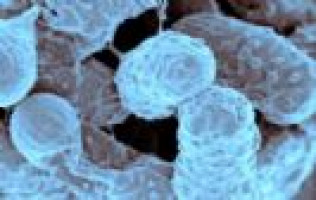
The same bacteria present in primary tumours of patients with colorectal cancer are also present in liver metastases, a new study in the journal Science finds.
What's more, presence of the bacteria was found to correlate with tumour growth.
“These observations suggest that this bacterium is more than a mere bystander or passenger of tumorigenesis, and not just a consequence of a favorable tumor microenvironment. It could in fact be a driver of metastases. Selective antimicrobial therapy could therefore represent important weaponry for the treatment of patients with Fusobacterium-associated colorectal cancer,” explains Paolo Nuciforo, Principal Investigator of Molecular Oncology at VHIO and co-author of the study.
To decipher its role as a potential cancer driver, the researchers used five independent cohorts of patient-derived colorectal cancer cancers for Fusobacterium and microbiome RNA and/ or DNA.
Where technically possible, the team also performed cultures.
Previous studies have found an abundance of Fusobacterium nucleatum in human colon cancers.
To explore whether colon cancer that has spread to other parts of the body also harbours the bacteria, Susan Bullman et al. analyzed samples of primary tumours and corresponding liver metastases in colon cancer patients.
They not only confirmed the presence of Fusobacterium in the metastases, but found that the strains were highly similar to those found in primary tumours of the same individual.
Notably, patients who did not have Fusobacterium within their primary tumours also lacked the bacteria in their metastases.
When the researchers transplanted Fusobacterium-positive tumours into mice, the tumours took hold, whereas tumours lacking the bacteria did not.
Results showed that oral administration of metronidazole decreased bacterium load, leading to reduced cancer cell proliferation, and reduced tumor growth, thus suggesting the validity of manipulating the microbial community for the treatment of Fusobacterium-associated CRC.
“Determining the localization of Fusobacterium within tissue samples may translate in a novel diagnostic approach. Establishing the invasive capabilities of this bacterium could be crucial in more precisely identifying those patients who would be most likely to benefit from antibiotic treatments,” adds Paolo.
Based on these results, the authors speculate that Fusobacterium travels with metastatic tumour cells to distant organs, perhaps aiding their colonization at these sites.
“The results support a causative role of Fusobacterium in colorectal cancer and provide a strong foundation for further pursuing targeted approaches directed against this bacterium and other key components of the cancer microbiome,” concludes Josep Tabernero, Director of VHIO and co-author of the study.
Source: American Association for the Advancement of Science & VHIO
The World Cancer Declaration recognises that to make major reductions in premature deaths, innovative education and training opportunities for healthcare workers in all disciplines of cancer control need to improve significantly.
ecancer plays a critical part in improving access to education for medical professionals.
Every day we help doctors, nurses, patients and their advocates to further their knowledge and improve the quality of care. Please make a donation to support our ongoing work.
Thank you for your support.